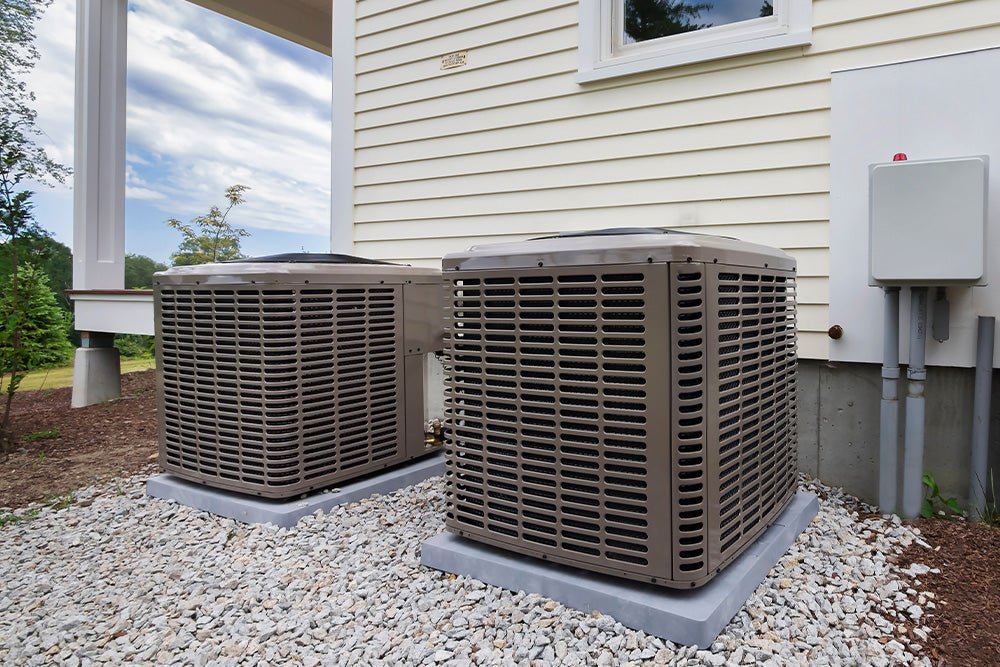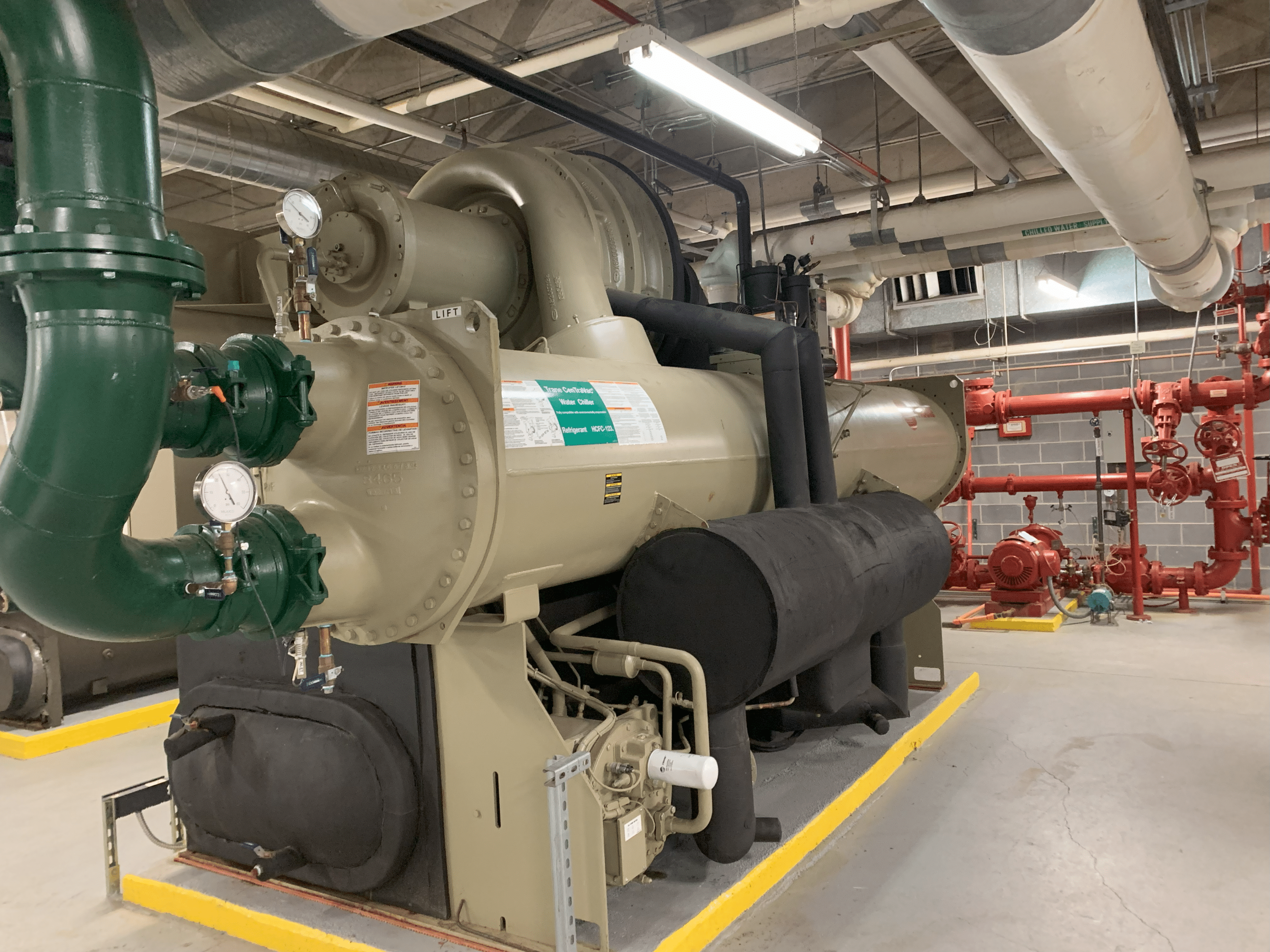Learn how HVAC experts keep your system performing efficiently
Wiki Article
Discovering the Important Components of an Efficient HVAC System
A reliable heating and cooling system is improved a number of vital elements that function in consistency. Each component, from the thermostat to the ductwork, plays an essential function in keeping comfort and energy efficiency. Comprehending these elements is vital for enhancing efficiency and improving interior air top quality. As one takes a look at these components, the complex connections between them reveal understandings into boosting total system effectiveness. What specific elements contribute most to this performance?The Function of the Thermostat in HVAC Effectiveness

Usually ignored, the thermostat plays a crucial function in the performance of A/c systems. This small device functions as the primary control facility, controling temperature level setups and making sure suitable comfort within an area. By precisely noticing the ambient temperature, the thermostat connects with the air, heating, and air flow conditioning systems to maintain the desired environment
An effective thermostat reduces energy intake by activating the HVAC system only when necessary, consequently avoiding too much home heating or cooling. Modern clever and programmable thermostats enhance this performance additionally by permitting individuals to set timetables and remotely adjust settings, adjusting to everyday routines.
The placement of the thermostat is essential; improper area can lead to unreliable temperature level readings, resulting in inefficient operation. In general, a well-functioning thermostat not just improves convenience yet also adds markedly to energy savings and the long life of the a/c system.
Understanding the Significance of Air Filters
Air filters serve a necessary feature in cooling and heating systems by assuring that the air distributing within an area remains tidy and healthy and balanced. These filters trap dirt, allergens, and other pollutants, preventing them from being recirculated throughout the atmosphere. By capturing these particles, air filters add to improved interior air quality, which can greatly benefit passengers' wellness, particularly those with allergic reactions or respiratory problems.In addition, maintaining tidy air filters improves the efficiency of HVAC systems. Clogged filters can restrict air movement, triggering the system to function more challenging to keep preferred temperatures, resulting in boosted power intake and greater utility expenses. Regularly changing or cleaning up filters is a vital upkeep step that can lengthen the life-span of heating and cooling tools. Inevitably, comprehending the relevance of air filters permits home owners and structure managers to take aggressive steps to ensure a well-functioning, effective a/c system that advertises a comfy and safe indoor setting.

The Performance of the Heating System and Heatpump
Heaters and heatpump are vital elements of heating and cooling systems, in charge of offering warmth during colder months. Furnaces run by heating air through burning or electric resistance, after that distributing it throughout the home through ducts. They normally offer quick home heating and can be sustained by all-natural gas, electricity, or oil, relying on the system type.Conversely, heat pumps move warmth as opposed to generate it. They extract warm from the outside air or ground, also in low temperatures, and move it inside your home. HVAC experts. This dual capability permits heat pumps to additionally supply air conditioning in warmer months, making them flexible options for year-round climate control
Both systems require proper maintenance to assure effectiveness and durability. While heaters stand out in extreme chilly, heatpump can be helpful in modest environments. Recognizing their distinct functionalities help homeowners in choosing one of the most suitable choice for their home heating needs.
Checking Out the Air Conditioning Device
The air conditioning unit is a vital part of a/c systems, offered in different types to fit different requirements. Comprehending the efficiency ratings of these systems is necessary for making informed selections about energy intake and expense. This section will explore the diverse kinds of air conditioning unit and clarify how effectiveness rankings effect efficiency.Kinds of Air Conditioners
While various aspects influence the choice of a/c systems, recognizing the various types offered is crucial for property owners and structure supervisors alike. Central air conditioning conditioners are designed to cool whole homes or buildings, using a network of ducts for airflow. Home window units provide a more localized service, perfect for small spaces or solitary spaces. Portable a/c unit provide flexibility, permitting users to move the system as required. Ductless mini-split systems are an additional choice, integrating the effectiveness of central systems with the convenience of zoning, as they call for no ductwork. Lastly, geothermal systems harness the earth's temperature for energy-efficient air conditioning. Each type comes with distinctive advantages, making informed choices important for reliable climate control.
Effectiveness Ratings Described
Understanding effectiveness ratings is essential for picking the appropriate cooling unit, as these metrics offer insight right into the system's efficiency and energy intake. The most common ranking for air conditioning system is the Seasonal Power Effectiveness Ratio (SEER), which measures the cooling output throughout a typical air conditioning period separated by the complete electrical energy input. A higher SEER shows better performance. Furthermore, the Power Efficiency Ratio (EER) is used for determining performance under particular problems. One more essential metric is the Power Celebrity accreditation, which symbolizes that a system fulfills stringent power performance standards. By evaluating these rankings, customers can make informed selections that not only optimize comfort however additionally reduce energy prices and environmental effect.The Importance of Ductwork and Airflow
Reliable ductwork style and air flow administration Get the facts play essential roles in the overall efficiency and performance of cooling and heating systems. Appropriate ductwork guarantees that conditioned air is dispersed equally throughout a space, lessening temperature level variations and enhancing convenience. Well-designed ducts lessen resistance to air movement, minimizing the work on heating and cooling equipment and eventually lowering energy usage.Air flow management entails strategically placing vents and signs up to enhance the flow of air. This stops typical problems such as cool or hot places, which can happen when air flow is obstructed or improperly well balanced. Furthermore, the ideal duct products and insulation can further enhance effectiveness by minimizing heat loss or gain throughout air transit.
An efficient ductwork system not only adds to power financial savings yet can also lengthen the lifespan of heating and cooling equipment by minimizing unneeded stress (HVAC experts). As a result, comprehending the relevance of ductwork and air flow is vital for achieving peak HVAC system efficiency
Regular Upkeep Practices to Enhance Efficiency
Regular upkeep practices are essential for making sure peak performance of cooling and heating systems. These techniques consist of routine evaluations, cleaning, and needed repair work to maintain the system running effectively. Routinely transforming air filters is vital, as clogged up filters can block air flow and reduce performance. Furthermore, specialists ought to check and tidy evaporator and condenser coils to stop overheating and energy wastefulness.Annual expert inspections are likewise recommended, as qualified specialists can recognize prospective concerns prior to they rise. Oiling moving components lessens wear and tear, adding to a longer life expectancy for the system. Guaranteeing that the thermostat functions properly aids in keeping excellent temperature control.
Often Asked Concerns
Exactly how Frequently Should I Replace My Thermostat?
Thermostats ought to commonly be replaced every 5 to 10 years, depending upon use and modern technology innovations. Normal checks are advisable to ensure peak efficiency, particularly if experiencing irregular temperature level control or enhanced energy prices.What Size Air Filter Is Best for My HVAC System?
The most effective size air filter for a heating and cooling system varies by device layout. Typically, it's important to seek advice from the proprietor's manual or check the existing filter measurements to assure peak efficiency and air quality.Can I Set Up a Heat Pump Myself?
Setting up a heatpump independently is possible for competent people, yet it calls for expertise of electric systems and regional codes. Employing a specialist is suggested to guarantee correct setup and excellent system performance.Exactly how Do I Know if My Ductwork Is Efficient?
To figure out ductwork performance, one must examine for leaks, measure airflow at vents, evaluate insulation quality, and review temperature level differences in between supply and return air ducts. Expert assessments can supply comprehensive insights into overall performance.see here now
What Are Indications My A/c Needs Immediate Upkeep?
Indications that a check my source cooling and heating system needs immediate maintenance include unusual sounds, inconsistent temperature levels, raised energy expenses, undesirable smells, and regular cycling. Addressing these problems immediately can prevent more damages and warranty top system efficiency.Air filters offer a crucial feature in Cooling and heating systems by assuring that the air distributing within an area continues to be tidy and healthy and balanced. Furthermore, preserving clean air filters improves the effectiveness of HVAC systems. Ductless mini-split systems are one more choice, combining the performance of central systems with the benefit of zoning, as they require no ductwork. Recognizing efficiency ratings is vital for picking the ideal air conditioning unit, as these metrics provide understanding into the system's efficiency and power usage. The best dimension air filter for an A/c system differs by unit layout.
Report this wiki page